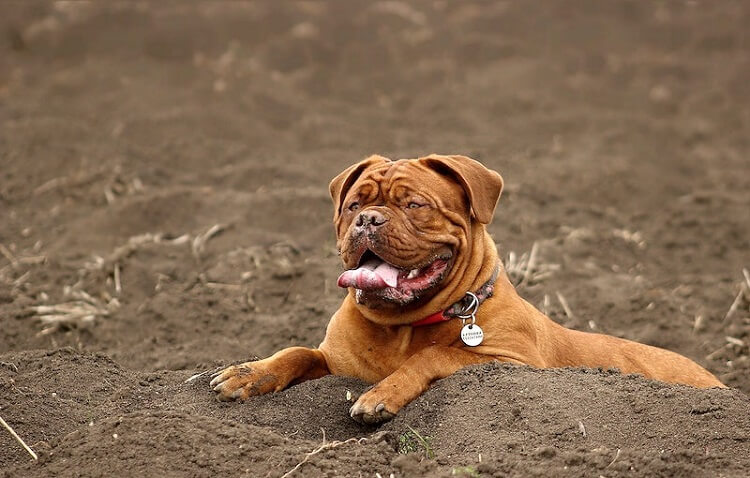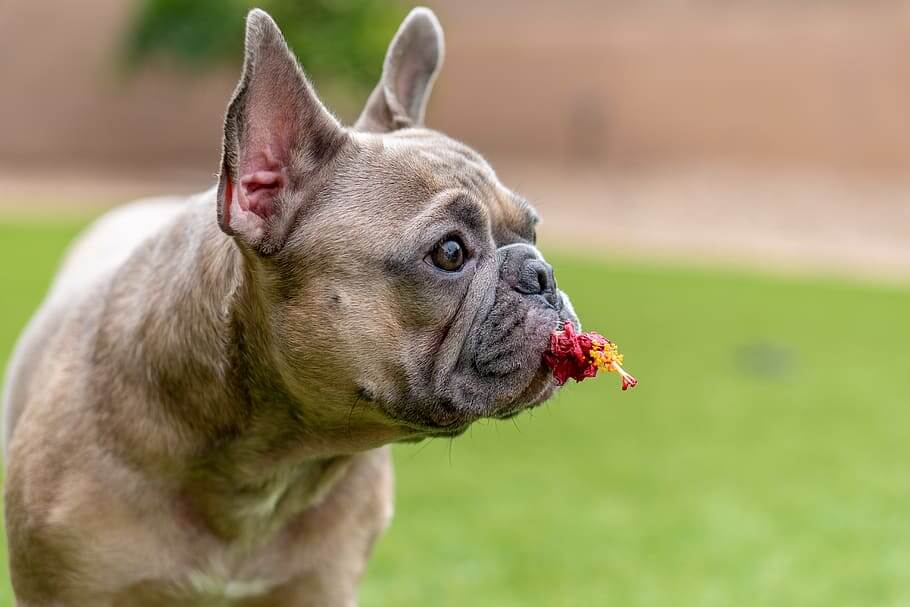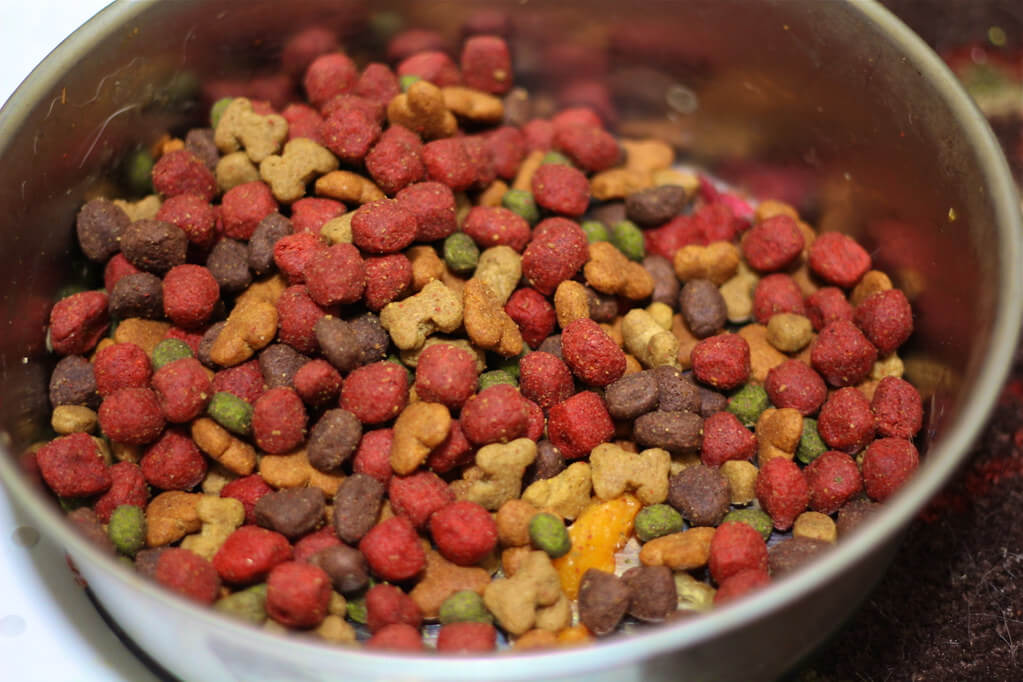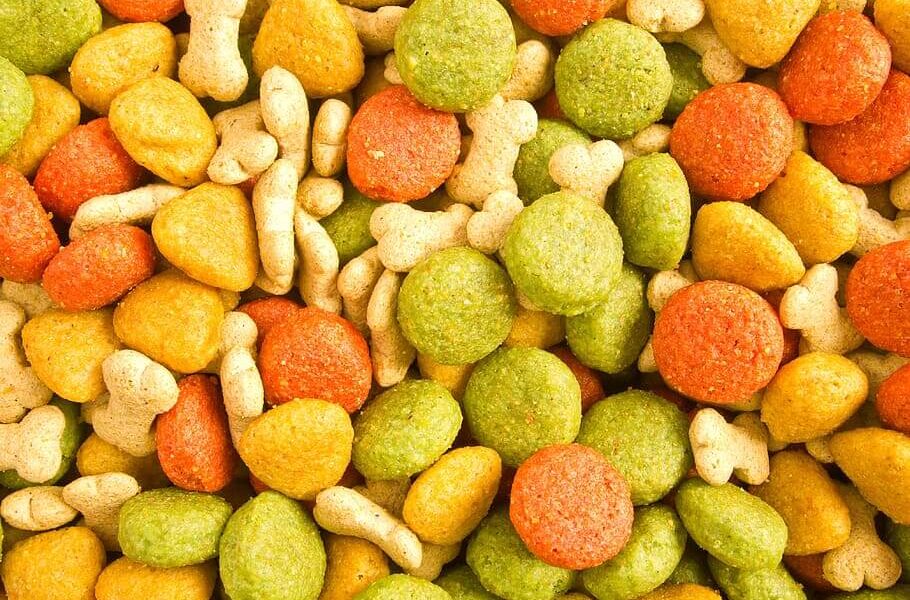Unveiling the Best Food for French Bulldogs: Expert Recommendations
Introduction
As the adorable and endearing French Bulldog continues to rise in popularity, pet owners need to understand pet owners must understand this beloved breed’s unique dietary needs. These muscular, compact canines have specific nutritional requirements that must be met to keep them healthy, happy, and full of that signature Frenchie spirit. Discovering the best food for French Bulldogs involves considering their unique dietary needs and preferences.
While their expressive bat-like ears and squished faces might be the first things that capture your heart, their dietary needs demand your attention. French Bulldogs are prone to weight gain, respiratory issues, and allergies, so providing them with a well-balanced, high-quality diet tailored to their breed is crucial.
This comprehensive guide will dive deep into French Bulldog nutrition, exploring the best foods to keep your furry companion thriving. Exploring the best food for French Bulldogs encompasses considering factors like breed tendencies and metabolism.

Researching the best food for French Bulldogs involves consulting with veterinarians and breed-specific experts. Selecting the best food for French Bulldogs can make a significant difference in their digestive health and stool quality. Adapting the best food for French Bulldogs according to their age and activity level is essential for their optimal health. Exploring the best food for French Bulldogs encompasses considering factors like breed tendencies and metabolism.
Get ready to unleash the power of proper nutrition and witness your French Bulldog flourish like never before!
Best Food for French Bulldogs Nutritional Requirements
Understanding their unique dietary requirements is the first step in ensuring your furry companion thrives.
Calories and Portion Control
One of the biggest challenges with French Bulldogs is their tendency to gain weight quickly. Adapting the best food for French Bulldogs according to their age and activity level is essential for their optimal health.
The ideal calorie intake for a French Bulldog can vary based on several factors:
- Age: Puppies require more calories for growth and development, while senior dogs may need fewer calories to maintain their ideal weight.
- Activity Level: More active Frenchies will burn more calories and require a higher calorie intake than passive ones.
- Weight: Overweight dogs require fewer calories to support weight loss, while underweight dogs may need more calories to gain weight healthily.
As a general guideline, adult French Bulldogs typically require between 20-30 calories per pound of body weight per day. However, it’s essential to consult with your veterinarian to determine your dog’s precise calorie needs.
Portion control is equally important. Overfeeding can lead to obesity, which can worsen pre-existing medical conditions and raise the possibility of joint problems, respiratory difficulties, and other conditions. Here’s a simple chart to help you estimate the right serving sizes according to the weight of your Frenchie:
| Weight (lbs) | Daily Portion (cups) |
| 15-20 | 1/2 – 3/4 |
| 21-25 | 3/4 – 1 |
| 26-30 | 1 – 1 1/4 |
| 31-35 | 1 1/4 – 1 1/2 |
Bear in mind that these are only suggestions; each person’s demands may be different. For tailored advice, always speak with your veterinarian. Selecting the best food for French Bulldogs can make a significant difference in their digestive health and stool quality.
Researching the best food for French Bulldogs involves consulting with veterinarians and breed-specific experts. Selecting the best food for French Bulldogs can make a significant difference in their digestive health and stool quality. Adapting the best food for French Bulldogs according to their age and activity level is essential for their optimal health. Exploring the best food for French Bulldogs encompasses considering factors like breed tendencies and metabolism.
Macronutrients
Macronutrients are the essential building blocks of a balanced diet, providing energy, promoting growth, and supporting various bodily functions. For French Bulldogs, the ideal macronutrient ratio includes:
1. Proteins: French Bulldogs thrive on a high-quality, animal-based protein source essential for building and maintaining lean muscle mass. Aim for a diet containing 18-22% protein from sources like chicken, turkey, fish, or lean meats.
2. Fats: Healthy fats are crucial for energy, skin and coat health, and overall well-being. Aim for a diet containing 10-15% fats from sources like fish oil, flaxseed, or animal-based fats.
3. Carbohydrates: While French Bulldogs don’t require a high-carbohydrate diet, they need complex carbohydrates for sustained energy. Aim for a diet containing 30-35% carbohydrates from sources like sweet potatoes, brown rice, or oats.
Researching the best food for French Bulldogs involves consulting with veterinarians and breed-specific experts.

Micronutrients
In addition to macronutrients, French Bulldogs require a variety of essential micronutrients, including vitamins and minerals, for optimal health. Here are some essential micronutrients to look for in your Frenchie’s diet:
- Calcium and Phosphorus: vital for the development of strong teeth and bones, particularly in the puppy stage.
- Vitamin A: Supports healthy vision, immune function, and skin and coat health.
- Vitamin E: serves as an antioxidant and encourages hair and skin health.
- Zinc: aids in wound healing and a robust immune system.
- Omega-3 Fatty Acids: Promotes cognitive function, skin and coat health, and joint health.
Ensuring your French Bulldog’s diet balances these essential micronutrients is crucial for their overall well-being and longevity.
By understanding and meeting your French Bulldog’s unique nutritional requirements, you’ll set them up for a lifetime of health, energy, and happiness. Investing in the best food for French Bulldogs means prioritizing quality ingredients and balanced nutrition.
Choosing the Best Food for French Bulldogs
With a clear understanding of your French Bulldog’s nutritional needs, the next step is to navigate the vast sea of dog food options available in the market. We’ve got you covered with a comprehensive guide to help you make an informed decision.
Types of Dog Food
When it comes to feeding your Frenchie, you have three main options to consider:
1. Dry Kibble: Dry kibble is the most convenient and widely available option. Look for high-quality, breed-specific formulas that cater to the unique needs of French Bulldogs.
2. Wet/Canned Food: Wet or canned food can be an excellent addition to your Frenchie’s diet, providing a moisture-rich source of nutrients and added flavour. Many dogs find wet food more palatable, making it an ideal option for picky eaters.
3. Raw Diet: A raw diet consisting of raw meats, bones, fruits, and vegetables has gained popularity in recent years. While this option provides a more natural and minimally processed diet, it requires careful preparation and handling to ensure safety and balanced nutrition.
Ensuring the best food for French Bulldogs supports their muscle development and overall growth.
Ingredients to Look For
Dog foods are not all made equal, and it’s essential to scrutinize the ingredient list to ensure you’re providing your furry companion with the best possible nutrition. Here are some key ingredients to look for:
1. High-Quality Protein Sources: Seek dog foods that list animal-based proteins (such as chicken, turkey, fish, or lean meats) as the first ingredient. These provide the essential amino acids necessary for muscle development and maintenance.
2. Wholesome Carbohydrate Sources: Look for complex carbohydrates like sweet potatoes, brown rice, or oats, which provide sustained energy and fibre.
3. Healthy Fats: Ingredients like fish oil, flaxseed, or animal-based fats are essential fatty acids that promote healthy skin, coat, and overall well-being.
4. Natural Sources of Vitamins and Minerals: Opt for dog foods that utilize natural sources of micronutrients, such as fruits and vegetables, rather than relying solely on synthetic supplements.
5. Probiotics and Prebiotics: These beneficial gut bacteria and dietary fibres can aid digestion and maintain a healthy gut microbiota, as it is essential to general well-being.

Ingredients to Avoid
Just as there are ingredients to seek out, there are also some to steer clear of. Here are a few red flags to watch out for:
- Fillers and By-Products: Steer clear of dog foods that include meat meals and by-products, as they may be of lesser nutritional value, as well as fillers like corn, wheat, or soy.
- Artificial Preservatives: Steer clear of artificial preservatives like BHA, BHT, and ethoxyquin, which have been linked to potential health risks.
- Artificial Colors and Flavors: These additives offer no nutritional value and may even contribute to allergies or sensitivities.
- Excessive Grains: While some grains are acceptable in Moderation, avoid dog foods with excessive grains or corn, as they can be difficult for French Bulldogs to digest.
Tailoring the best food for French Bulldogs can help manage specific health concerns like allergies or sensitivities.
Choosing the Best Food for French Bulldogs Brand
With so many different types of dog food available, it can be overwhelming to determine which ones are genuinely reputable and committed to providing high-quality nutrition. Here are some factors to consider when selecting a brand:
1. Reputation and Transparency: Look for brands with a strong reputation for quality and transparency in their sourcing and manufacturing processes.
2. Certifications and Quality Control: Select brands that follow stringent quality control procedures and carry certifications from organizations like the AAFCO or the National Research Council (NRC).
3. Nutritional Expertise: Choose brands that employ qualified veterinary nutritionists or animal nutritionists to formulate their recipes and ensure they meet the specific needs of different breeds and life stages.
4. Positive Reviews and Testimonials: Positive comments and endorsements from other French Bulldog owners might offer insightful information about a brand’s efficacy and quality, even though they are not infallible.
5. Consultation with Veterinarians: Don’t hesitate to consult with your veterinarian for brand recommendations tailored to your Frenchie’s specific needs and health conditions.
Providing the best food for French Bulldogs can contribute to their longevity and vitality.
By understanding the types of dog food available, scrutinizing ingredient lists, and selecting reputable brands, you’ll be well on your way to providing your furry companion with the optimal nourishment they deserve.
The following section’ll explore special dietary considerations, such as food allergies, weight management, and life-stage-specific diets, to further tailor your Frenchie’s nutrition plan.
Researching the best food for French Bulldogs involves consulting with veterinarians and breed-specific experts. Selecting the best food for French Bulldogs can make a significant difference in their digestive health and stool quality. Adapting the best food for French Bulldogs according to their age and activity level is essential for their optimal health. Exploring the best food for French Bulldogs encompasses considering factors like breed tendencies and metabolism.
Special Dietary Considerations for Best Food for French Bulldogs
While meeting the general nutritional requirements is essential for your French Bulldog’s well-being, some exceptional circumstances may necessitate customized dietary adjustments. From food allergies and sensitivities to weight management and life stage-specific needs, it’s crucial to understand and address these special nutritional considerations.
Food Allergies and Sensitivities
This might show themselves in a number of ways, including as respiratory disorders, stomach troubles, and skin irritations. Identifying and managing these allergies is crucial for your Frenchie’s comfort and overall health. Finding the best food for French Bulldogs involves considering their unique dietary needs and preferences.
Common Food Allergens for French Bulldogs
Although any item has the potential to cause an allergic reaction, the following are some typical foods that French Bulldogs are sensitive to:
- Proteins: Beef, chicken, dairy products, eggs
- Grains: Wheat, corn, soy
- Other Ingredients: Preservatives, artificial colours, and flavours
Symptoms to Watch For
If your Frenchie develops any of the following symptoms, it may be a sign of a food allergy or sensitivity:
- Skin Issues: Itching, hot spots, rashes, hives, or excessive licking/biting of the skin
- Gastrointestinal Issues: Vomiting, diarrhoea, flatulence, or chronic digestive discomfort
- Respiratory Problems: Wheezing, coughing, or nasal congestion
- Ear Infections: Recurring ear infections or inflammation
- Lethargy and Mood Changes: Unusual tiredness or irritability
Identifying and Managing Food Allergies/Sensitivities

If you suspect your French Bulldog has a food allergy or sensitivity, working closely with your veterinarian to identify the culprit ingredient(s) is essential.
Once the offending ingredient(s) have been identified, you must transition your Frenchie to a specialized hypoallergenic or limited-ingredient diet that excludes those allergens. Several high-quality dog food brands offer hypoallergenic formulas specifically designed for dogs with food sensitivities.
Weight Management
French Bulldogs are prone to obesity, mostly because of their low levels of activity and propensity for overeating. Retaining a healthy weight is essential for avoiding many health complications, such as joint problems, lung problems, and reduced mobility. For the sake of their health and wellbeing, French Bulldogs need to eat the greatest diet possible.
Strategies for Maintaining a Healthy Weight
To help your Frenchie achieve and maintain a healthy weight, consider the following strategies:
1. Portion Control: Carefully measure and monitor your dog’s daily food intake, following the recommended portion sizes for their ideal weight.
2. Low-Calorie/Weight-Loss Dog Food: Consider transitioning to a specially formulated low-calorie or weight-loss dog food that provides essential nutrients while limiting caloric intake.
3. Increased Exercise: Incorporate regular exercise into your Frenchie’s routine, such as daily walks, playtime, or even indoor games and activities, to burn excess calories.
4. Treat Moderation: While treats can be an excellent training tool and a way to bond with your dog, they should be given in Moderation and accounted for in your Frenchie’s daily caloric intake.
Low-Calorie/Weight-Loss Best Food for French Bulldogs Options
Several reputable dog food brands offer low-calorie or weight-loss formulas for overweight or obese dogs. These formulas typically contain higher levels of protein and fibre to promote a feeling of fullness while limiting caloric density.
When choosing a weight-loss dog food, look for options that still provide complete and balanced nutrition, ensuring your Frenchie doesn’t miss out on essential vitamins and minerals during the weight-loss process.
Life Stage-Specific Diets
French Bulldogs have varying nutritional needs throughout their life stages, from puppyhood to adulthood and into their senior years. Tailoring their diet to these specific life stages is crucial for ensuring optimal growth, development, and overall well-being. Investing in the best food for French Bulldogs aligns with the commitment to providing them with a high-quality and balanced diet for optimal health.
Puppy Nutrition Requirements
French Bulldog puppies have higher nutritional requirements during the first year of life to support their rapid growth and development. High-quality puppy food for larger-breed puppies can provide the necessary nutrients to build strong bones, muscles, and vital organs.
Critical considerations for puppy nutrition include:
- Higher Calorie Density: Puppies require more calories per pound of body weight to support their growth and energy needs.
- Appropriate Calcium and Phosphorus Levels: For the development of healthy bones and teeth, these minerals must be present in the right amounts.
- Balanced Protein and Fat Levels: Sufficient protein and healthy fats support muscle growth and brain development.
- Omega-3 Fatty Acids: vital for general development and cognitive function.
Adult Maintenance Diets
Once your French Bulldog reaches adulthood (around 12-14 months), their nutritional needs shift to maintenance mode. Adult dog food formulated for their breed size and activity level can help maintain their ideal weight and overall health.
Critical considerations for adult maintenance diets include:
- Moderate Calorie Density: Adult dogs have lower calorie requirements than growing puppies, so portion control is essential.
- High-Quality Protein Sources: Lean protein supports muscle maintenance and overall health.
- Balanced Carbohydrates and Fats: Complex carbohydrates and healthy fats provide sustained energy and support overall well-being.
- Antioxidants and Probiotics: These support a healthy immune system and digestive function.
Senior Dog Dietary Needs
As French Bulldogs enter their golden years (typically around 8-10 years old), their nutritional needs shift once again. Senior dog foods are formulated to address the unique health concerns and metabolic changes associated with ageing.
Critical considerations for senior dog diets include:
- Lower Calorie Density: Senior dogs tend to be less active and may require fewer calories to maintain a healthy weight.
- Highly Digestible Proteins and Carbohydrates: Easily digestible nutrients support ageing digestive systems.
- Glucosamine and Chondroitin: These supplements can help support joint health and mobility.
- Antioxidants and Omega-3 Fatty Acids: These support cognitive function, skin and coat health, and overall well-being.
By tailoring your French Bulldog’s diet to their specific life stage, you can ensure they receive the appropriate nutrient balance and support for their changing needs, promoting overall health and longevity.
Addressing special dietary considerations is essential to caring for your French Bulldog. By being proactive and working closely with your veterinarian, you can identify and manage any food allergies or sensitivities, maintain a healthy weight, and provide tailored nutrition for each life stage. With the proper dietary adjustments, you can help your furry companion thrive and enjoy a higher quality of life.

In the next section, we’ll explore the process of transitioning your French Bulldog to a new dog food, ensuring a smooth and stress-free experience for both you and your furry friend. Researching reputable brands and their ingredients aids in selecting the best food for French Bulldogs to support their nutritional needs.
Transitioning to a New Best Food for French Bulldogs
Sudden food changes can cause upset stomachs, which can be disagreeable as well as risky for your pet. A steady and methodical approach is necessary to guarantee a seamless transition and reduce any negative effects.
Why Transition Gradually?
French Bulldogs, like many dogs, have sensitive digestive systems that can react negatively to sudden changes in their diet. A new food may be introduced too soon and result in digestive problems like vomiting, diarrhea, or diminished appetite.
By making the switch gradually, you lower the possibility of discomfort and guarantee a smooth transition by giving your Frenchie’s digestive system time to become used to the new diet. Understanding the importance of selecting the best food for French Bulldogs underscores the commitment to their long-term health and happiness.
How to Slowly Transition to a New Best Food for French Bulldogs
Transitioning to a new dog food typically takes around 7-10 days, but the exact timeline may vary depending on your dog’s needs and tolerance. Here’s a step-by-step guide to help you navigate the transition smoothly:
1. Start with a small portion: On the first day, mix a small portion (about 20%) of the new food with your Frenchie’s current food.
2. Gradually increase the new food: Over the next few days, gradually increase the proportion of the fresh food while decreasing the amount of the old food. A common approach is to increase the new food by 20% every 2-3 days.
3. Monitor your dog’s reaction: Closely observe your Frenchie’s appetite, digestion, and overall well-being during the transition period. Slow down the transition or consult your veterinarian for guidance if you notice any signs of digestive upset, such as diarrhoea or vomiting.
4. Complete the transition: By day 7-10, your French Bulldog should be fully transitioned to the new food.
Here’s an example schedule for a 7-day transition:
| Day | Old Food | New Food |
| 1 | 80% | 20% |
| 3 | 60% | 40% |
| 5 | 40% | 60% |
| 7 | 20% | 80% |
| 9 | 0% | 100% |
Remember, this is a general guideline, and you may need to adjust the timeline based on your Frenchie’s response to the new food. Tailoring the diet to include the best food for French Bulldogs can address specific health concerns such as allergies or sensitive stomachs.
Indications of Digestive Problems During the Transition
It is imperative that you keep a close eye out for any indications of digestive trouble in your French Bulldog during this transitional period. These could consist of:
- Diarrhea: Loose, watery stools are a common sign of digestive upset.
- Vomiting: If your Frenchie is vomiting frequently, it could be a sign that the transition is happening too quickly.
- Decreased Appetite: A sudden loss of appetite or disinterest in food may indicate that the new food does not agree with your dog.
- Gas or Bloating: Excessive gas or a bloated appearance can also be a symptom of digestive issues.
If you notice any of these signs, consider slowing the transition or consulting your veterinarian for guidance.
Tips for a Smooth Transition
In addition to following the gradual transition process, here are some additional tips to help make the switch to a new dog food as seamless as possible:
1. Choose a High-Quality Food: Choose a recognized brand that is made especially for small/medium breeds, such as French Bulldogs, and uses premium ingredients.
2. Introduce New Food Slowly: Even after the initial transition, gradually introduce new protein sources or novel ingredients to minimize the risk of digestive upset.
3. Stay Consistent: Once your Frenchie has successfully transitioned to the new food, it’s essential to maintain consistency and avoid frequent changes to their diet.
4. Provide Fresh Water: Throughout the changeover period, make sure your dog has access to lots of fresh, clean water to aid in digestion and prevent dehydration.
5. Monitor Portion Sizes: Adjust portion sizes to maintain your Frenchie’s ideal weight and body condition.
6. Consult Your Veterinarian: See your veterinarian for specific advice and direction if you have any concerns or if your dog continues to have digestive problems.
A new dog food transition for your French Bulldog is a procedure that needs time and close observation. You can guarantee a smooth and painless transition for your pet by taking a progressive approach and keeping an eye out for any signs of digestive trouble. Remember, consistency and high-quality nutrition are vital to supporting your Frenchie’s overall health and well-being throughout their life.
In the next section, we’ll explore other essential feeding tips and best practices to help you provide the best possible care for your beloved French Bulldog. Providing the best food for French Bulldogs contributes to their energy levels, digestion, and coat health.
Other Feeding Tips and Best Practices
While selecting the right food and managing dietary transitions are crucial aspects of caring for your French Bulldog, several other feeding tips and best practices can help optimize their overall health and well-being. Finding the best food for French Bulldogs may involve consulting with veterinarians or animal nutritionists for personalized recommendations.
Importance of Fresh Water Availability
Proper hydration is essential for your French Bulldog’s overall health, digestion, and bodily functions. Always ensure that your furry companion has access to fresh, clean water. Changing the water and washing the bowl daily is recommended to prevent bacterial growth and contamination.
Feeding Schedules and Routines
Establishing a consistent feeding schedule and routine can help regulate your Frenchie’s appetite, digestion, and overall well-being. Most adult French Bulldogs do well with two meals daily, spaced approximately 8-12 hours apart.
Dogs thrive on routines, and sticking to a regular schedule can help prevent digestive issues, begging behaviours, and other unwanted habits.
Treating and Moderation
Treats can be valuable for training, bonding, and rewarding good behaviour, but they should be given in Moderation. Excessive treatment can lead to obesity, which can exacerbate existing health issues in French Bulldogs.
Exploring different options can help find the best food for French Bulldogs that suits their individual tastes and dietary requirements.
Signs of Potential Health Issues Related to Diet
While a well-balanced diet is essential for your French Bulldog’s health, some dietary-related issues may still arise. Be vigilant for the following signs, which may indicate an underlying health problem:
- Sudden Weight Loss or Gain: Unexplained weight changes can indicate an underlying condition or an imbalance in their diet.
- Poor Coat Condition: A dull, dry, or brittle coat can be a symptom of nutritional deficiencies or digestive issues.
- Chronic Digestive Problems: If your Frenchie experiences persistent vomiting, diarrhoea, or constipation, it may be time to reevaluate their diet or consult a veterinarian.
- Lethargy and Low Energy Levels: Your dog may become lethargic and generally lack energy as a result of poor diet.
Ensuring the best food for French Bulldogs promotes their overall health and well-being is essential for responsible pet ownership.
Conclusion: Best Food for French Bulldogs
Providing your French Bulldog with a well-balanced, high-quality diet is one of the most critical pet owner responsibilities. Even while it could at first seem daunting, you can make sure that your beloved friend gets the best nutrition possible to help them grow if you have the right information and advice.
lt’s always best to consult your veterinarian for personalized nutritional recommendations tailored to your French Bulldog’s needs. Choosing the best food for French Bulldogs requires careful attention to ingredients and nutritional balance.

Your Frenchie’s health and happiness are well worth the effort, and by providing them with the best possible nutrition, you’ll be laying the foundation for a long, joyful, and energetic life together. Embrace the journey, and let your love for your furry companion guide you every step.

